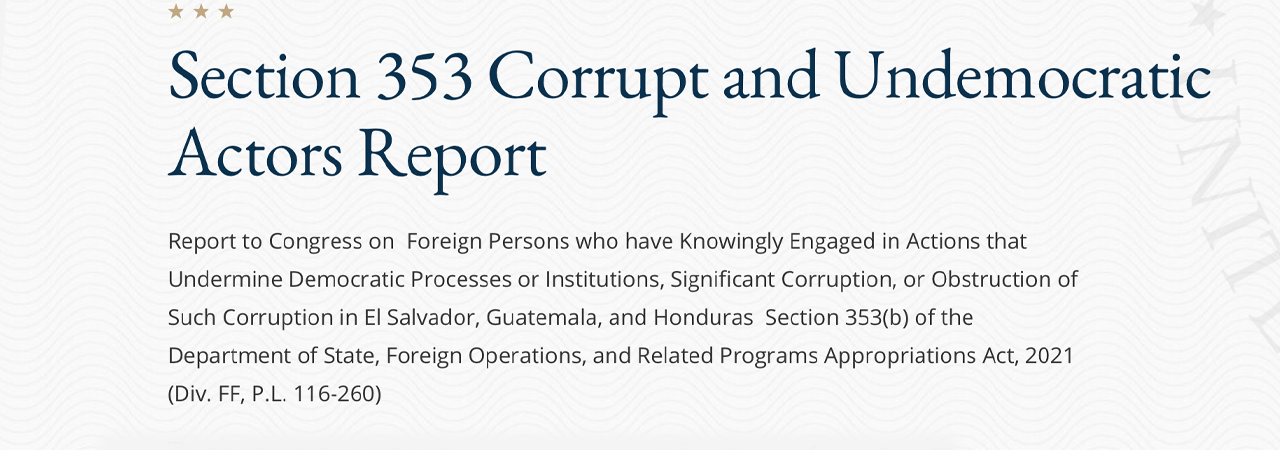US State Department Official Wants El Salvador to ‘Ensure Bitcoin Is Well Regulated’

The U.S. Department of State’s undersecretary of state for political affairs, Victoria Nuland, has explained during a press conference that the U.S. has urged El Salvador to be responsible with the country’s new bitcoin law. Nuland told the press that the U.S. was taking a “tough look at Bitcoin” and that Salvadoran president Nayib Bukele needs to “ensure that it is well regulated.”
State Department Official Says US Is Taking a Tough Look at Bitcoin
According to statements from a senior U.S. State Department official, the U.S. hopes El Salvador will be responsible with the country’s new bitcoin tender law enacted on June 9, 2021. The undersecretary of state for political affairs, Victoria Nuland, explained that she had a meeting with the Salvadoran president Nayib Bukele and they discussed the crypto asset bitcoin (BTC). The American diplomat stressed to Bukele that after the Colonial Pipeline ransomware case, the U.S. was taking “another tough look at bitcoin.”
“I did suggest to the president that whatever El Salvador chooses to do, you ensure that it is well regulated, that it is transparent and that it is responsible, and you protect yourself against malign actors,” Nuland told reporters at the press conference.
El Salvador has had issues getting world leaders to agree with the new bitcoin tender law’s benefits. The World Bank rejected a request from El Salvador for assistance and the president of the European Central Bank (ECB), Christine Lagarde, recently discussed the subject with disparagement. At the time, Lagarde reiterated that the ECB’s policy toward bitcoin (BTC) has not changed. Benoit Coeure, head of the Innovation Hub at the Bank for International Settlements (BIS) also criticized Salvadoran president Nayib Bukele’s bitcoin tender law.
US State Department Claims 14 Salvadorans Associated With President Nayib Bukele ‘Corrupt and Undemocratic’
In addition to the senior U.S. State Department official’s statements after meeting with Bukele, the U.S. State Department named 14 Salvadorans that are members of the Bukele regime as “corrupt” and “undemocratic actors.”
 This announcement has made people think that the U.S. is cracking down on El Salvador for choosing to leverage bitcoin. “Unconventional Warfare (UW) in action,” explained the popular anonymous analyst Plan B on Twitter. “See link below for what happens to countries that refuse IMF demands [and choose] freedom,” Plan B tweeted.
This announcement has made people think that the U.S. is cracking down on El Salvador for choosing to leverage bitcoin. “Unconventional Warfare (UW) in action,” explained the popular anonymous analyst Plan B on Twitter. “See link below for what happens to countries that refuse IMF demands [and choose] freedom,” Plan B tweeted.
Economist Steve Hanke: ‘State Department Is Wielding the Hammer’
Even the economist Steve Hanke said: “First, it was El Salvador’s Bitcoin Law. Now, the State Department is wielding the hammer.” Hanke has warned that Salvadoran bitcoin adoption could lead to a “complete collapse of the economy.” Moreover, Hanke and two other authors that publish papers on applied economics at Johns Hopkins University wrote a paper that says: “El Salvador’s bitcoin law is destined to be caught in the FATF’s regulatory web.”
“Under the Bitcoin Law, El Salvador will undoubtedly be ensnared in the Financial Action Task Force’s web of regulations,” Hanke explained on Twitter. “In this working paper, I identify 27 of the FATF’s ‘red-flag’ behaviors that will be impossible for El Salvadorans to comply with.” Victoria Nuland’s recent comments and the U.S. State Department’s “Corrupt and Undemocratic Actors Report” suggest that American bureaucrats agree with Hanke’s opinion.
What do you think about the American diplomat’s recent statements and the U.S. State Department’s latest undemocratic actors report? Let us know what you think about this subject in the comments section below.



